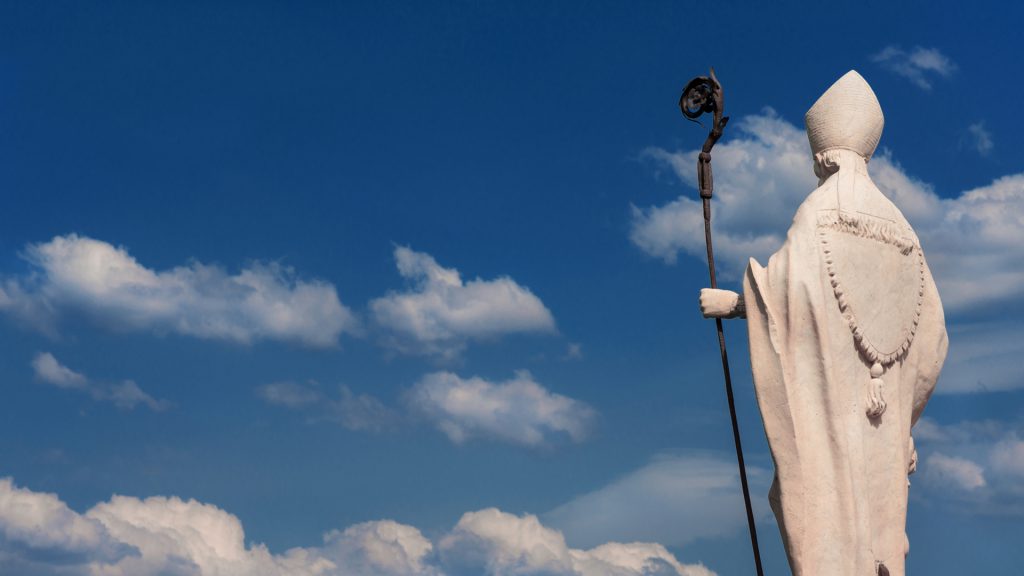
Published May 9, 2019
Next month, the U.S. Conference of Catholic Bishops will meet in general assembly in Baltimore. The bishops left their November meeting without any decisive action towards ensuring accountability for bishops. Since then, the American bishops have gone on retreat together – at Pope Francis’ request – and the leaders of national episcopal conferences have met in Rome for a summit on the problem of clerical abuse of minors. The global Church is catching up to the American Church in handling the abuse crisis. As odd as it may sound, that’s a good thing.
But here in the States, there is still a palpable sense of frustration and urgency. The bishops will have unfinished business to attend to in Baltimore.
Just after Easter, a delegation from the USCCB went to Rome to discuss the reform proposals that will be on the Baltimore docket. Cardinal DiNardo was not with the delegation because of ill health. The bishops don’t want a repeat of last November’s fiasco when votes on proposed reforms were canceled at the eleventh hour at Rome’s insistence.
One bishop told me that, while he expects the proposed reforms for bishops’ accountability to pass in June, if the conference can’t agree on a way forward, many bishops are already inclined to follow the lead of the Archdioceses of Baltimore and Boston in putting in place their own third-party reporting systems and accountability mechanisms. In other words, many bishops are done waiting for Rome and the conference.
The June meeting in Baltimore will also come almost exactly one year after news broke that Theodore McCarrick’s sexual misbehavior had resulted in settlements in two dioceses, and that charges of abusing a minor had come to light. It’s worth recalling that, if his misdeeds had “merely” included preying on seminarians and priests, he would almost certainly remain a Cardinal today.
McCarrick was laicized earlier this year, but many of the questions about his long career and rise to prominence remain unanswered. Last October, the Holy See announced that Pope Francis had ordered a “thorough study of the entire documentation present in the Archives of the Dicasteries and Offices of the Holy See regarding the former Cardinal McCarrick in order to ascertain all the relevant facts, to place them in their historical context and to evaluate them objectively.”
Whether the results of that study will ever be made public – and, if so, when – remains unclear. Last November, the U.S. bishops overwhelmingly voted against a resolution to ask the Holy Father to make the conclusions of the McCarrick study public. It was a low point of the November meeting.
For better or worse, any disclosure of the facts of McCarrick’s rise is now inextricably linked to – and complicated by – the interventions of Archbishop Viganò. The author’s champions and opponents alike have picked over the Viganò testimony in excruciating detail. The Vatican – though not the Holy Father – has offered partial responses and rebuttals of particular points.
But for all the controversy and division it has caused, and whatever else you may think about the testimony or the author’s motives, there is one basic fact that even the staunchest critics of Viganò will concede: his testimony remains the only public attempt, from someone in the know, to provide a comprehensive answer to the question everyone has been asking since last summer: Who knew what about McCarrick and when?
If Viganò’s is the only full (or purportedly full) account out there, Pope Francis’s silence has all but ensured that it will remain so. If the Holy Father isn’t going to say what he knows, why would anyone else stick his neck out?
The Holy Father’s silence leaves the American episcopate, in particular, in a rather awkward spot. If a bishop asks too many questions about the career of Theodore McCarrick, he risks being labeled a “Viganista” who is showing his disloyalty to the Holy Father. If a bishop keeps quiet, his flock begins to wonder why he’s so uninterested in getting to the bottom of who-knew-what-and-when. People may even begin to ask what he has to hide.
Meanwhile, millions of American Catholics are wondering why, a year after the McCarrick scandal broke and seventeen years after the Dallas Charter, transparency and the pastoral needs of the Church are still taking a back seat to ecclesiastical politics and the unwritten rules of episcopal deference.
The American bishops could go a long way toward making up for the disappointment of last November by emphasizing to the Holy Father – respectfully, publicly, and as a body – the pastoral imperative for Rome to be as transparent as possible with the results of its study of the career of Theodore McCarrick.
Of course, establishing uniform accountability measures for bishops and getting to the bottom of the McCarrick mess are far from sufficient for resolving the current mess. Neither is going to fully restore the credibility of the bishops or heal the wounds in the Church. But that doesn’t mean these actions are not urgent – and necessary. Together they would make a sort of down payment on restoring the trust of the faithful that has been so badly eroded over the last year.
For our ecclesiastical leaders to begin to regain the confidence of their flocks, they’re going to have to find ways to overcome the distrust of one another. That may sound impossibly naïve, but what good is an episcopate that’s afraid to ask Rome for what its people need? And how does Rome giving the silent treatment to shepherds it doesn’t trust help a flock that’s desperate for the truth?
As I said, there’s unfinished business in Baltimore.
© 2019 The Catholic Thing.
Stephen P. White is a fellow in Catholic Studies at the Ethics and Public Policy Center in Washington.









